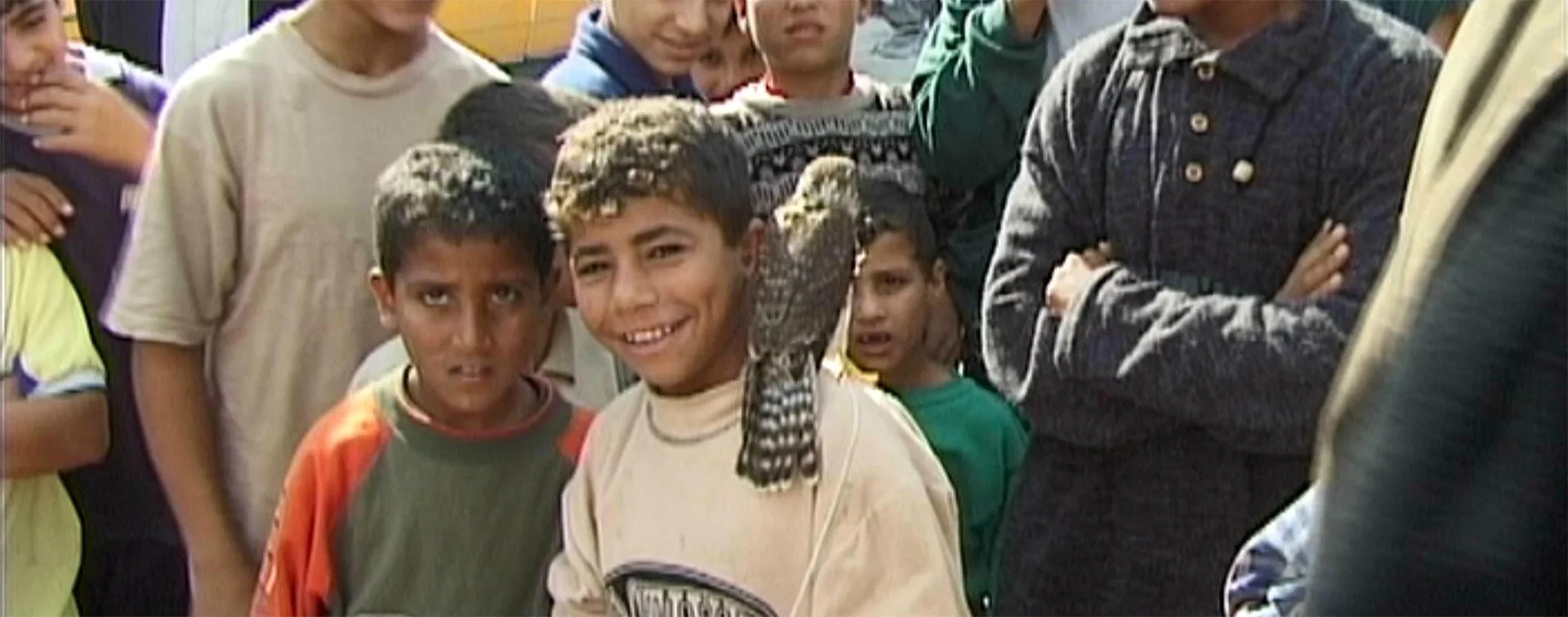VIFF 2025 | Capsule Reviews: "Blue Heron", "Deathstalker", "With Hasan in Gaza" & "Ancestral Visions of the Future"
The Vancouver International Film Festival has arrived, and while there are plenty of big names getting some deserved attention, there are also dozens of lesser known titles that may have flown under your radar heading into the festival. With that said, here are a handful of titles worth checking out as VIFF gets under way!
Ancestral Visions of the Future
It’s been half a decade since Lemohang Jeremiah Mosese’s ascendancy to the forefront of independent African cinema, and the Lesotho-born, Berlin native returns with a docufiction ode to his mother and motherland.
Ancestral Visions of the Future, Mosese’s third feature, is a musical mosaic telling the story of his childhood in Lesotho, while showing us the childhood of an unnamed farmboy. It’s a beautiful grafting of his life thirty years ago onto the world today.
As is always the case with Mosese, Ancestral Visions is stunning to look at. More akin to a museum exhibit than simply a movie, it weaves the southern African landscape photography with a nostalgic-tinted afrofuturism. As a work of both documentary and fiction, Ancestral Visions is a one of a kind cinematic experience.
Blue Heron
Few filmmakers in recent memory have been burdened with more expectation for their debut than Sophy Romvari, the Canadian director behind 2020’s breakthrough short Still Processing. And yet, with Blue Heron, Romvari has blown off whatever expectations cinephiles (historically a pretty judgemental group) thrust upon her.
Her sensational debut is a meta-autobiographical narrative feature centered on a Hungarian-Canadian family growing up on Vancouver Island in the 1990s – but it’s far from a conventional family drama. Because Romvari was just a child during the events she’s recreating, this is a film told from a child’s perspective. And all of the pain of watching her parents struggle with her unstable older half-brother is lovingly rendered. It is a unique story, uniquely told, but one that hits universally. Blue Heron isn’t just one of VIFF’s best, it’s one of the best of the year.
Deathstalker
I will admit to having had tempered expectations heading into Steven Kostanski’s remake of the 1983 sword and sorcery film, Deathstalker. In that same breath, allow me to also admit that I was pretty quickly won over by one of the most fun films at VIFF’s Altered States has to offer.
As in Kostanski’s previous work (Psycho Goreman, Frankie Freako) Deathstalker is a practical effects extravaganza that intentionally plays up the B-movie of it all. The plot is incidental and the hammier the performance the better. (I was especially appreciative of the mistimed dubbing of Patton Oswalt’s puppet voiceover.
Deathstalker is, in form, essentially the same as nearly every 1980s’ sword and sorcery film: a muscled man goes on a quest, with a silly sidekick and badass woman, to save the realm. But in refusing to take itself seriously (a misstep for even the classics like Conan the Barbarian), Deathstalker is somehow more fun than its predecessor.
With Hasan in Gaza
Some films feel like, as you’re watching them, they shouldn’t exist. Like they weren’t meant for your eyes. Some explicitly tell you that, such as The Blair Witch Project; others, it’s merely a permeating feeling - think Cure. And then there’s an even rarer third type of forbidden-feeling film, the ones that really shouldn’t exist.
With Hasan in Gaza falls, almost exclusively, into that category. A collection of home videos/travelogues from Gaza show the insurrection of the Palestinian people to the brutish oppression of the Israeli government. These videos, shot by director Kamal Aljafari, weren’t meant to capture what they do: an uprising, a protest, a military invasion, an entire community building precious memories under the awning of occupation.
Aljafari had gone to Gaza, camera in hand, in search of a friend – the titular Hasan – that he had made over a decade prior in prison. And while this documentary could have been made this year, or last year, or the year before, it was actually filmed nearly twenty-five years ago, in November of 2001.
With Hasan in Gaza is a collection of images that feel simultaneously real and rare; timely and timeless. It is a documentary that was never meant to be made, set in a world that no longer exists, on tapes that shouldn’t have survived – and yet, as is also the case of the spirit and strength of the Palestinian people, it has lived on. It was made. It does exist. And it is beautiful.




